This post is also available in: Español (Spanish) Kreyòl (Haitian Creole)
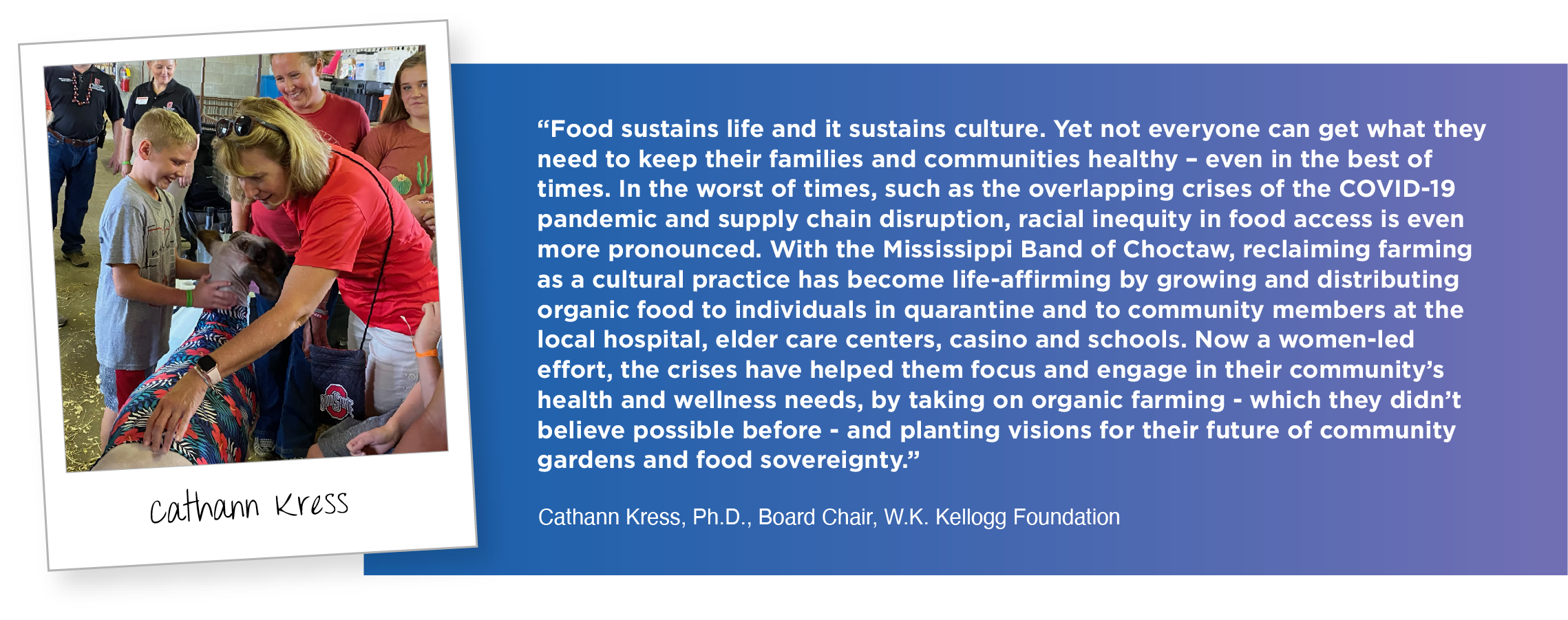
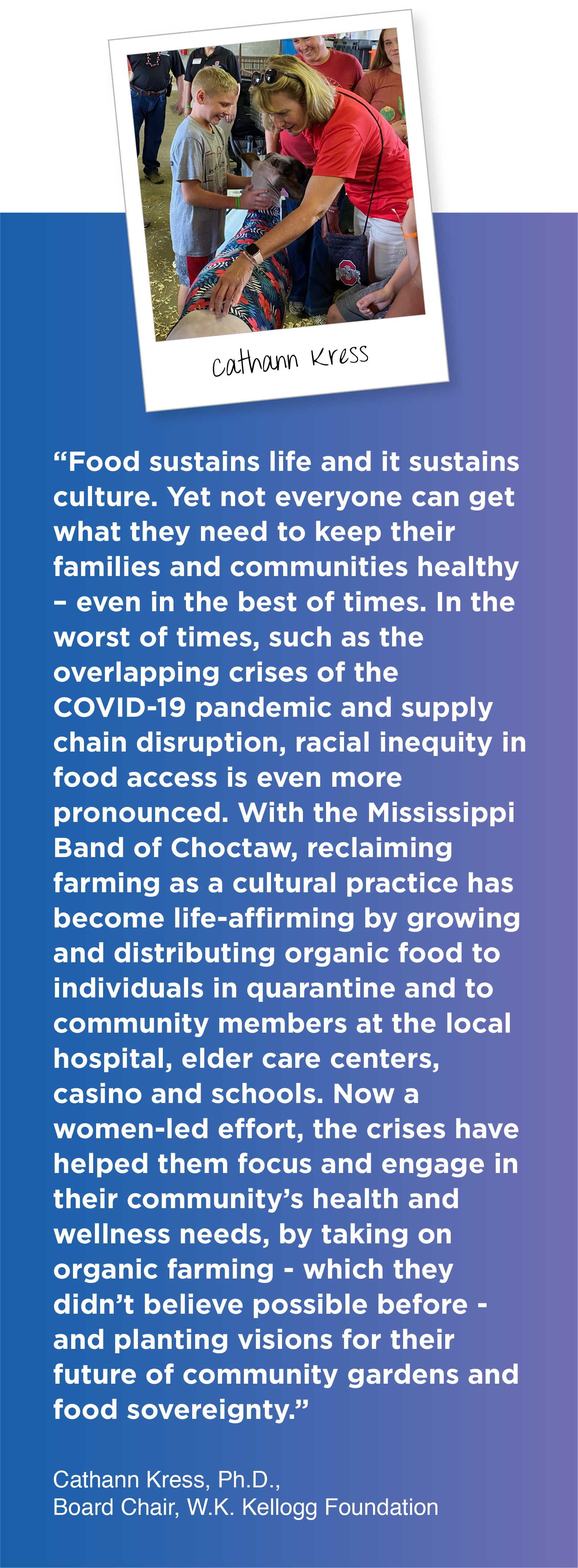
Choctaw Fresh Produce is a Tribal-led farming initiative in central Mississippi, on the Choctaw Reservation, located near the town of Philadelphia. The Mississippi Band of Choctaw is the only federally recognized American Indian Tribe in the state of Mississippi.
The group is impacting the tribe’s health by distributing organic food, grown on the reservation, to women- and diabetes-focused wellness programs at the local hospital, elder care centers, the local casino and schools. Choctaw Fresh Produce also operates mobile produce vans, which carry their vegetables into more isolated areas of the reservation.
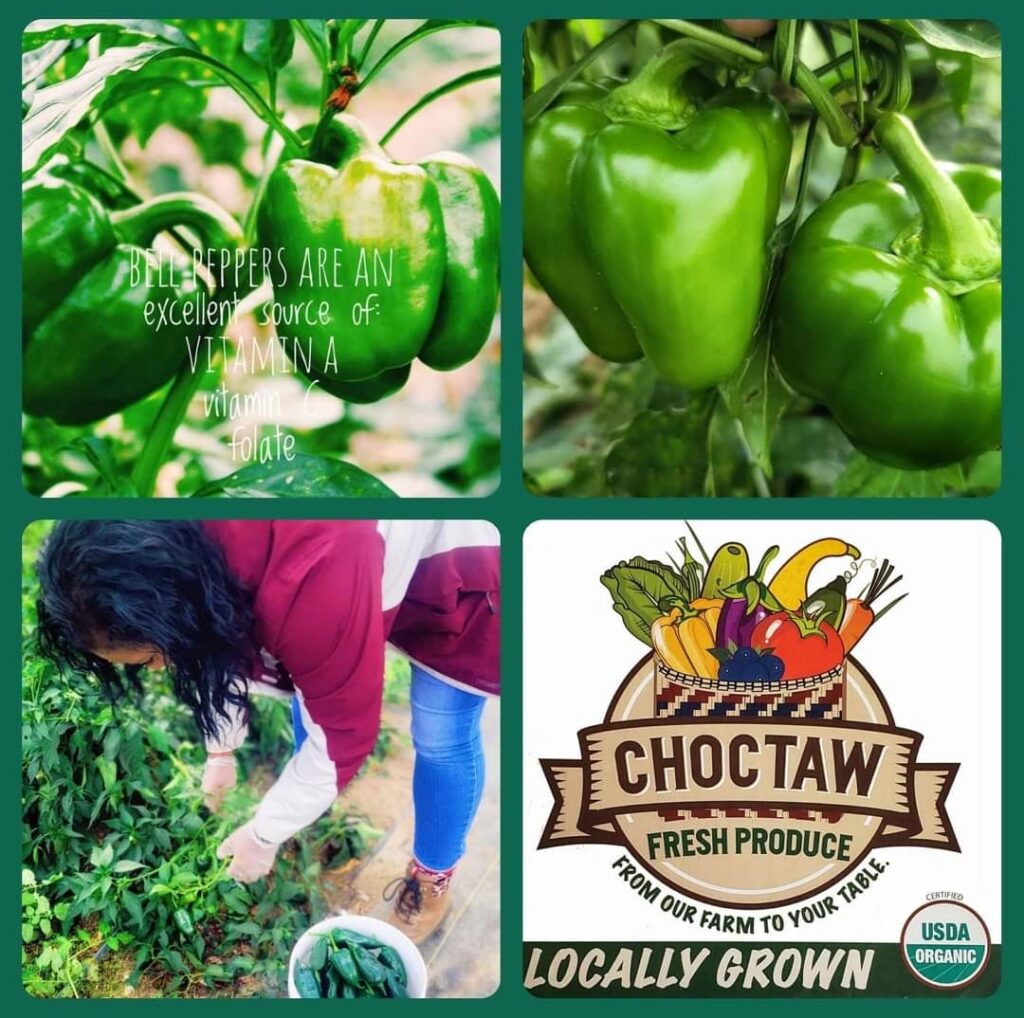
During COVID, fresh produce also has gone to Tribal members who were quarantined. As farm manager Daphne Snow, says, “Organic produce is just the kind of food you need in that situation.”
We had a chance to talk with Snow and her colleagues, local food coordinator Tomika Bell and bookkeeper DeSandra Ben, who have been with the organization since 2012, to learn more about the initiative and community.
Planting the first seeds
Carlson: What’s the origin story of Choctaw Fresh Produce?
Snow: There was a man, Mr. Dick Hoy, who was the manager at the Tribal vocational rehabilitation program, where we grew flowers for the landscaping at the Tribe and resort. I always said he should grow organic. He would say, “Nah, I don’t want to do that.”
Then, the executive chef at the resort asked the question, “Why can’t some of the produce for the restaurants be grown by the Tribe on Tribal land?” That set the ball rolling with economic development and finding funding. So, one day Mr. Hoy came to me and said, “Are you ready?”
I was shocked that we were going to grow organic in Mississippi. It took us three years to get one farm certified organic, because we’re used to our tractors and pesticides. Once we started following the rules and regulations, all five farms were certified quickly.
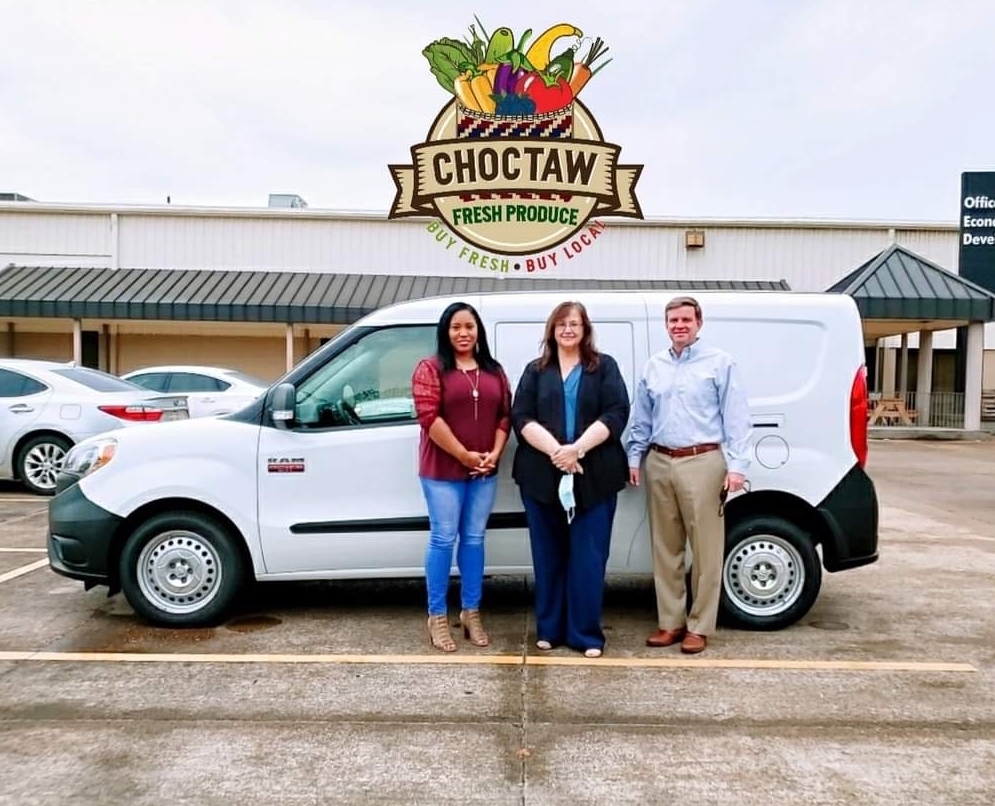
It’s a dream come true. I grew up farming – but never like this."
Daphne Snow, Manager of Choctaw Fresh Produce
Carlson: Mr. Hoy founded the farms, but it’s women-led now?
Snow: Mr. Hoy passed away and his responsibilities were placed on Jason Grisham, who became the general manager and director John Hendrix. I became the farm manager. Over the past few years more women were hired. I worked with a lady, Annie Frazier, at the resort for many years and went to her and said, “would you like to come farm?” Now she’s our farm tech supervisor. So, she’s a lady who is Tribal member. Our wash and pack position, is a lady. Tomika’s position – she’s a lady. And our bookkeeper, Desandra Ben, has been an integral part of Choctaw Fresh Produce from the start and is a woman.
Ben: I think with women leading, I feel like that may be more to the reason it’s geared more to the schools and elderly – just having that motherly instinct. Over the years I’ve seen it become more community-oriented. It’s become more about the Tribal members.
Bell: My position was created in June 2020 to have better relationships within the Tribal community. What we’re doing for our Tribe is a vessel for our community to provide culturally significant food for the Mississippi Band of Choctaw.
Produce used to be a part of our job as Choctaws, it was how we provided for our families.
Especially with the coronavirus, light was shined on us. There was no means of finding food (at the beginning of the pandemic). Grocery stores were running out of veggies – even canned. And most Tribal communities aren’t close to stores. We had to revert back to providing for our families in our traditional ways. This pandemic was the best time to shine light on how communities can help each other.
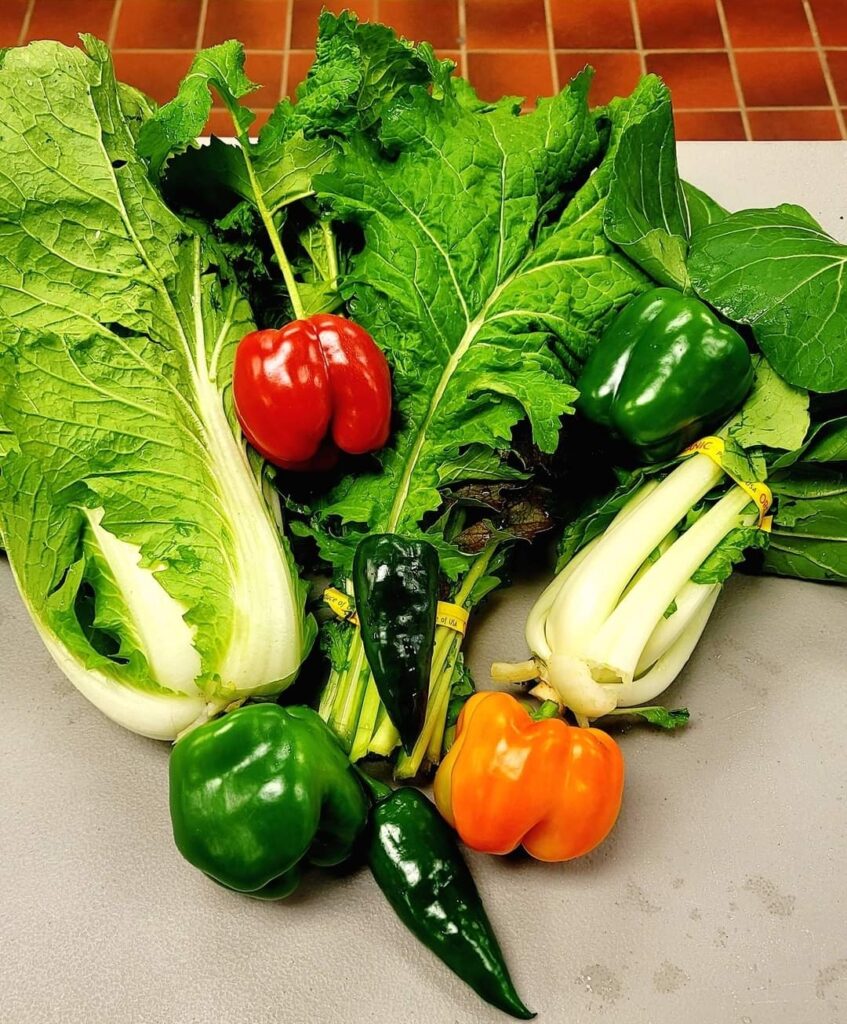
Lay of the land
Carlson: How many people are involved in farming?
Bell: With our farm crew and inside crew – all washing and packing, seeding to planting to harvesting, washing, packing and delivers, there’s not a lot of people. We range from six to eight employees.
Carlson: How expansive are the farms?
Snow: Less than five acres. We use high tunnels, which extends the season to produce more food. We have a central farm on the main reservation, two in production and five completed. Each farm has three high tunnels. Our square footage produces a lot of food.
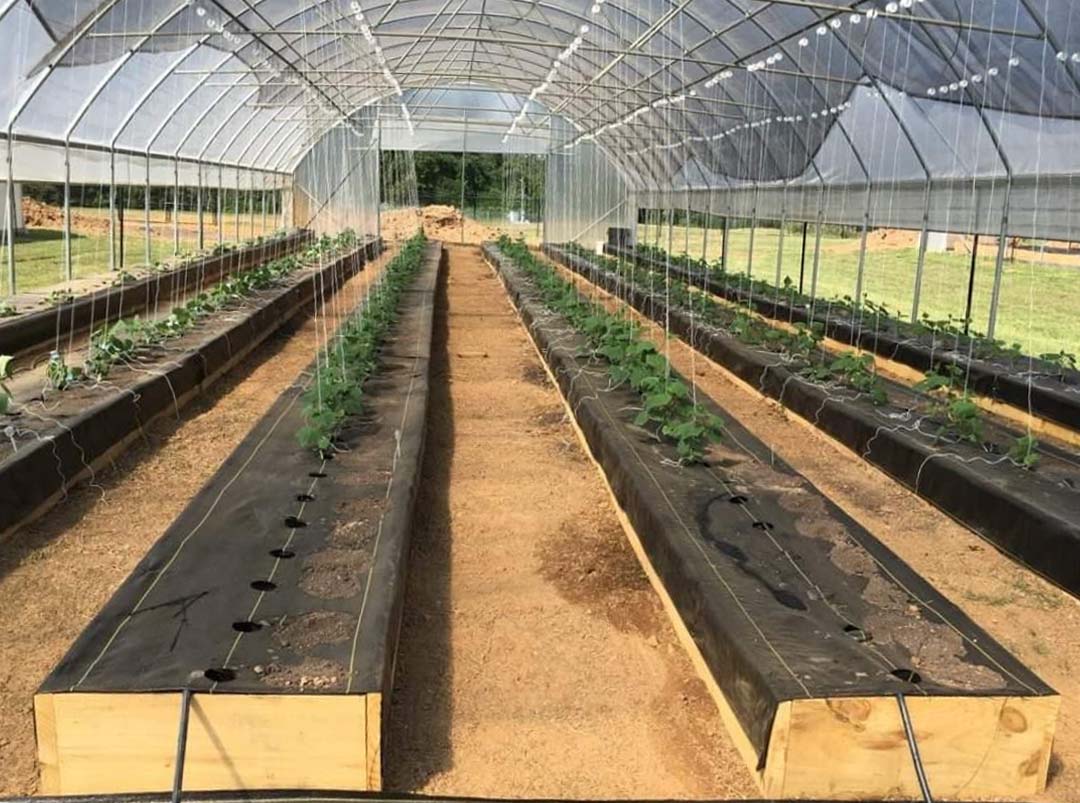
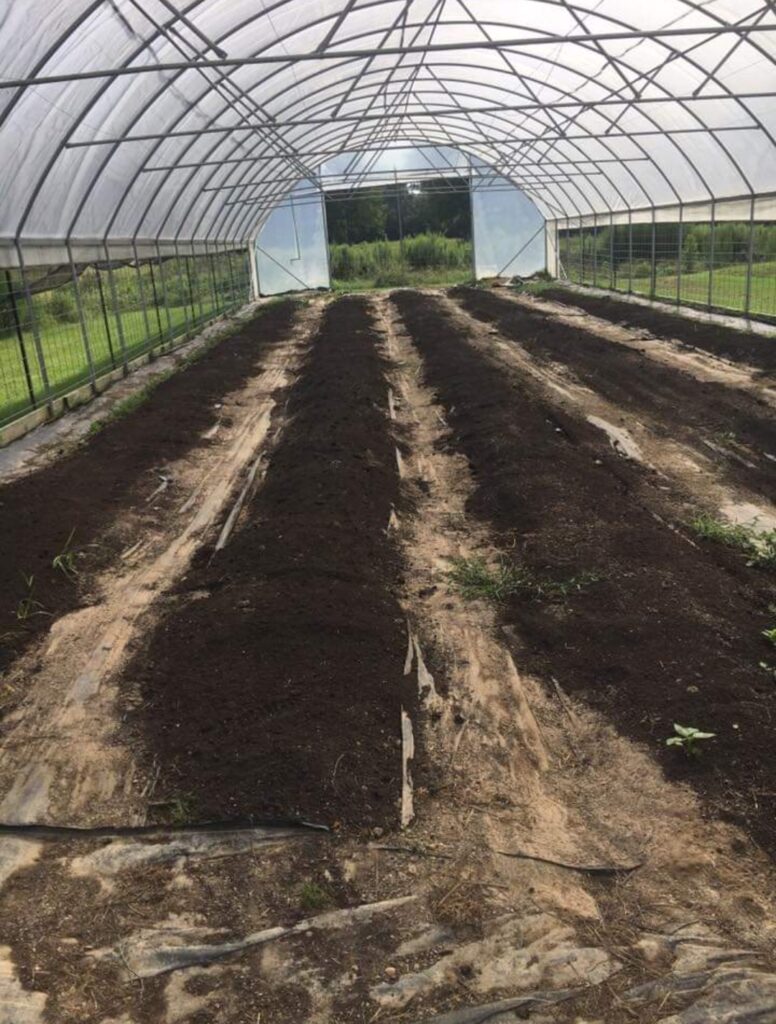
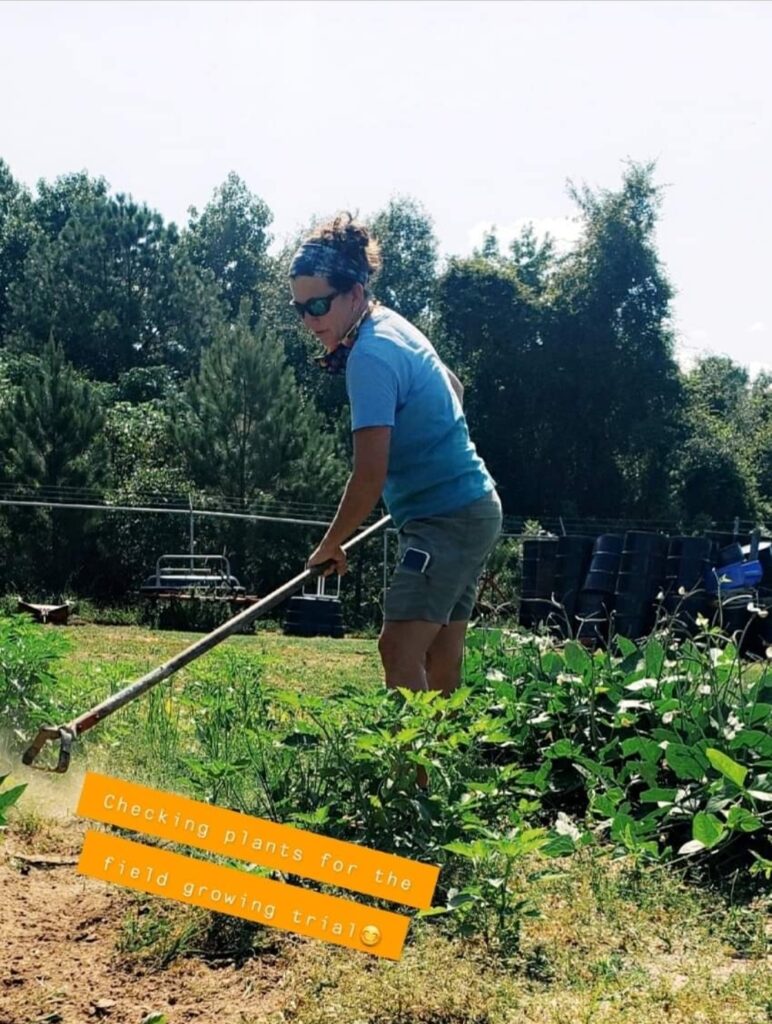
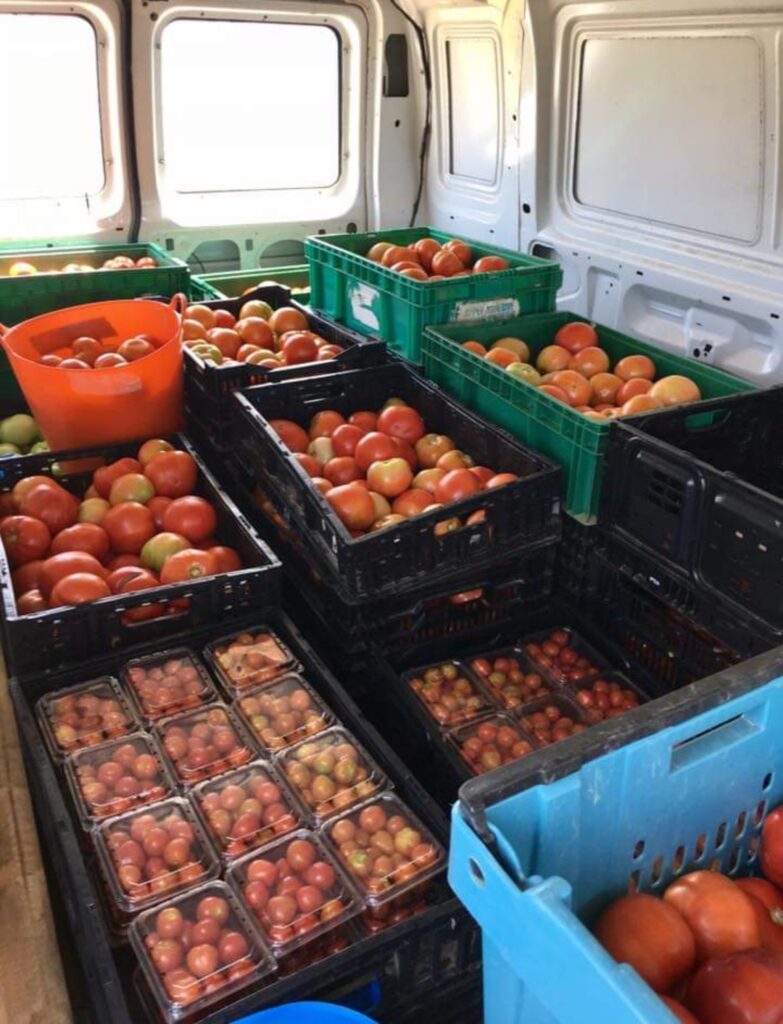
Reclaiming roots
Carlson: I’m wondering how you each became passionate about fresh foods and farming?
Snow: Mississippi leads the nation in everything – obesity, heart conditions – we’ve got all these marks against us.
Growing flowers for the resort with pesticides, I felt “this can’t be good for you.” The more I read, the more I felt I didn’t want to be around pesticides or eat food with pesticides.
I grew up in a family that farmed and everything was with synthetic chemicals. Ninety-five percent of what we ate at home came from our own garden – and you’re ingesting all of this. I saw my mom and dad with their health and what they went through.
When you get our Choctaw Fresh Produce, it’s as natural as you can get it – more natural than what you’re growing in your backyard. It’s a little harder, but we take on that burden.
When I started visiting with elders about our program, I found every food has a story."
Ben: Just the fact that it’s organic. In the beginning, I started buying the vegetables and introduced them to my grandkids and my grandkids just love fresh produce now.
Bell: I visited Choctaw Fresh Produce during a food fellowship and met Daphne. She said they were looking for a grantwriter and someone to connect Tribal and non-Tribal communities. I’d been with the attorney general’s office for ten years and wanted to move home to be closer to family. I could relate to the Tribal members and am fluent in Choctaw.
I was always introduced to farming but never took interest until I came here. It was fun trying to figure everything out; I got some of the vegetables confused when I started, like I didn’t know how pickles came. Every day was a learning experience.
“When I started visiting with elders about our program, I found every food has a story. They’ll say “when I was growing up, I picked collards with my grandma.” To hear that’s how they used to have fun, through farming together or preparing food together; that’s what sparked me to feel like I love it here. The elders are very sacred and I love to hear all the stories.
Carlson: Which foods would you say are culturally significant?
Bell: Peas, beans, collards, squash. Daphne will say “stop frying your vegetables,” but us Choctaws love fried squash.
Red tomatoes and green tomatoes are very significant. My mom and dad’s story – when we ran out of food to eat, they ate tomato sandwiches.
Blueberries are also a big part of our culture, used for food and for art – dying Choctaw baskets.
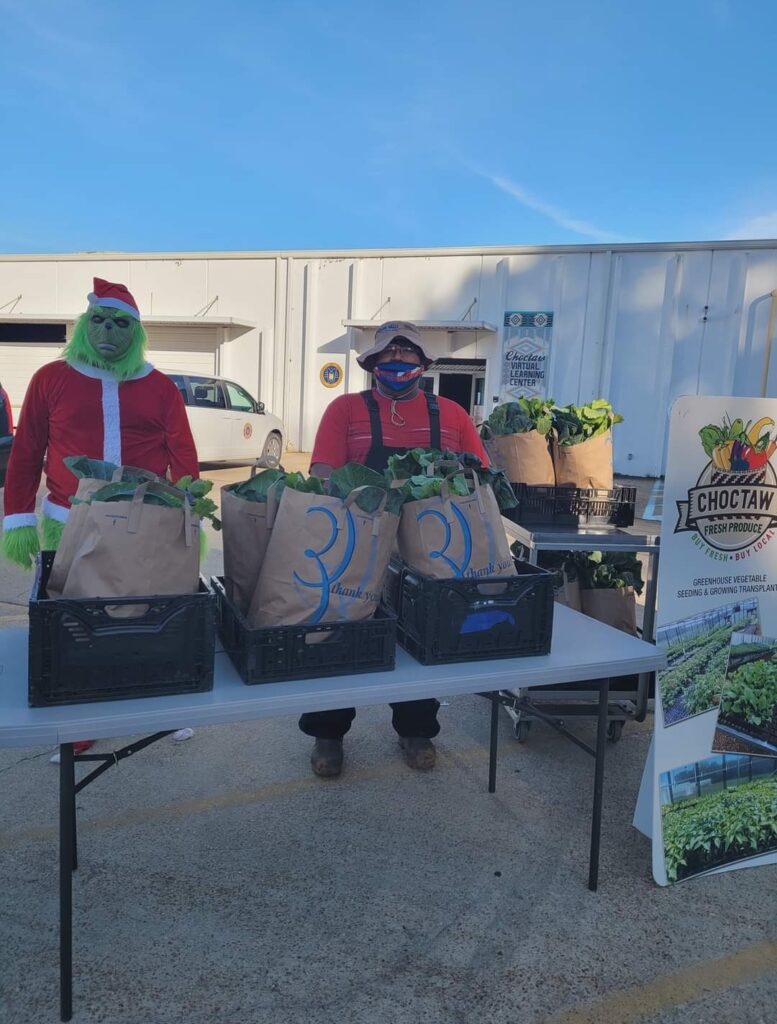
From soil to the sky
Carlson: What do you hope is the future of Choctaw Fresh Produce?
Snow: I hope that at some point we can provide 50% of the produce the Tribe uses through Choctaw Fresh Produce. The Tribe has enough land to farm beef, pork, chicken. We could provide all of this for the tribe; the sky’s the limit for how Choctaw Fresh Produce could go contributing food sovereignty for the Tribe.
Ben: One of the things they’re working on that will be really good – community gardens where they do demonstrations, take the kids out and let them see how things are grown.
Bell: I want to see people come back to the way things used to be – farming as how you provide for your family. Choctaws can go back to how we did things in the past.
I want to see people come back to the way things used to be – farming as how you provide for your family. Choctaws can go back to how we did things in the past."
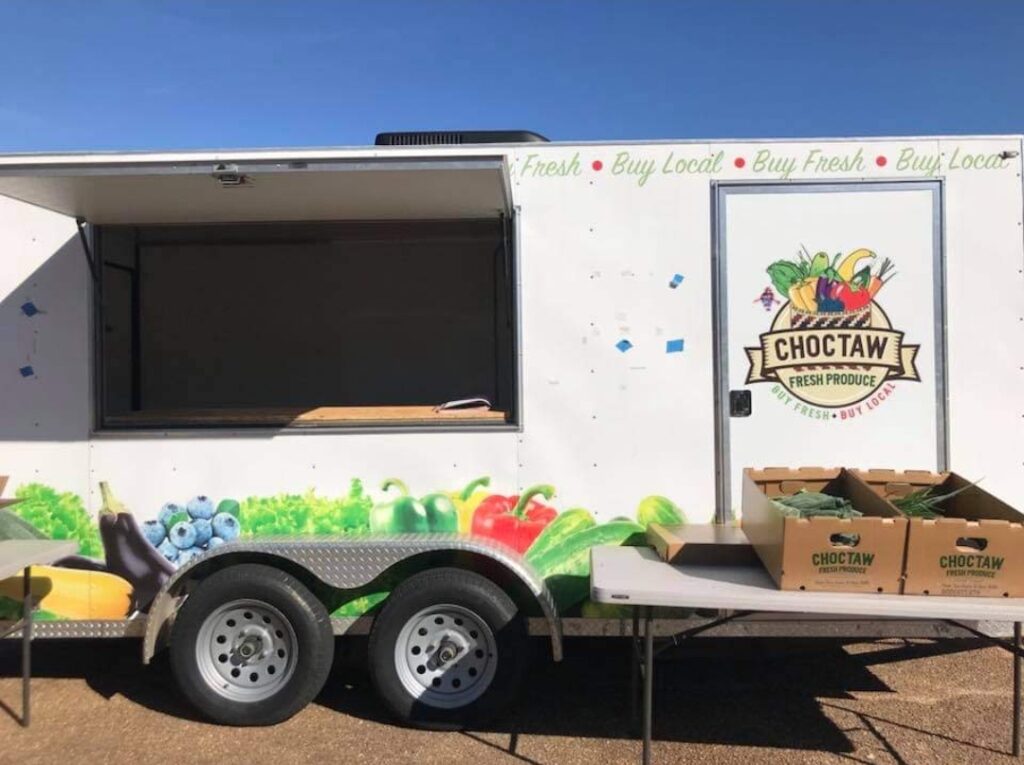

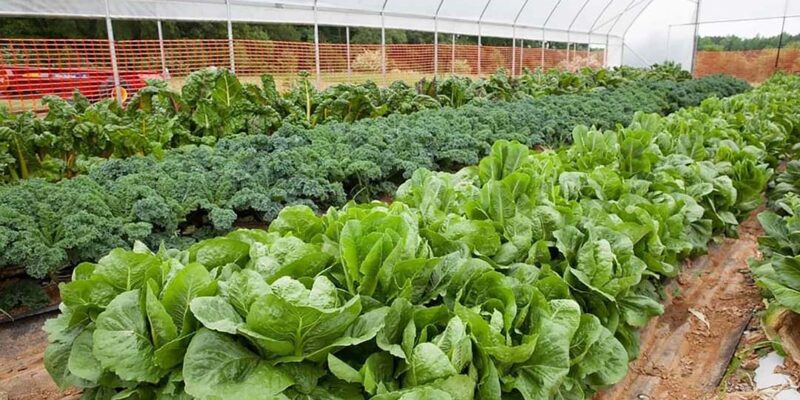
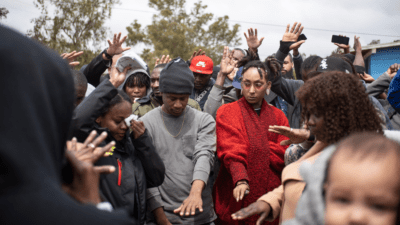
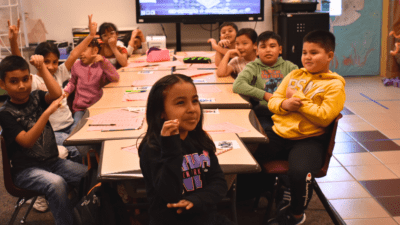
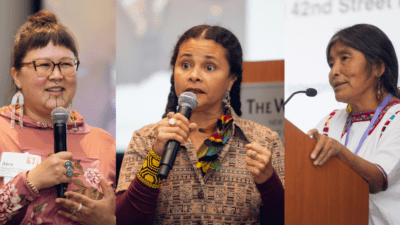
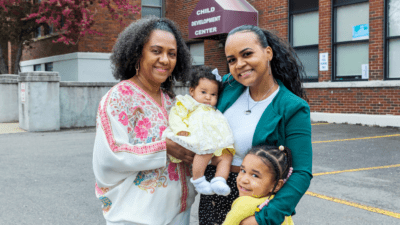


Comments